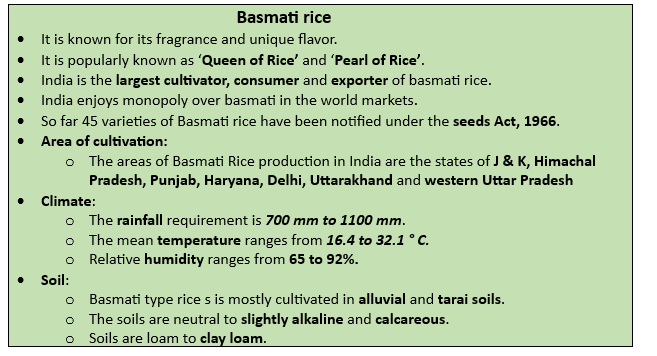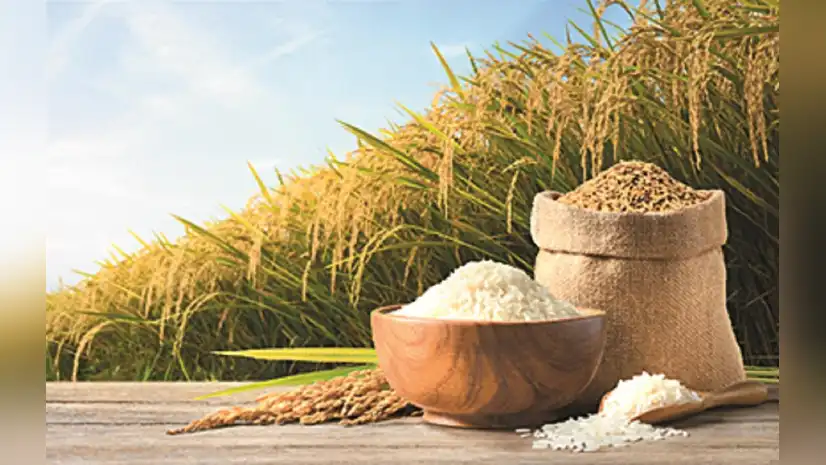Context:
Agricultural and Processed Food Products Export Development Authority (APEDA) is setting up Uttar Pradesh’s second Basmati Export Development Foundation (BEDF) in Pilibhit to boost exports and improve local production.
More In News:
- Pilibhit farmers are set to export premium Basmati rice to over 100 countries, following the success of a ₹10 crore project in Meerut with the support of APEDA.
- APEDA has granted approval for a 7-acre plot located at the government agricultural farm in Tanda Bijesi village for use by the BEDF.
- The proposed BEDF in Pilibhit will include a research, demonstration, and training center, as well as a high-quality seed production unit.
- It will also house a world-class NABL-accredited laboratory to test Basmati DNA, pesticide residues, and heavy metals critical for complying with international export standards.
- The BEDF BEDF aims to promote the cultivation of high-quality Basmati in Pilibhit, training farmers in advanced agricultural techniques, and offering marketing support, especially for exports.
- The farmers will receive training to produce nucleus Basmati seeds.
- Entrepreneurs and exporters engaged in paddy processing and seed production will also be trained in scientific methods.
- The program will be offered free of charge and will extend its benefits to farmers from other states as well.
- Although Pilibhit is one of Uttar Pradesh’s leading producers of coarse paddy, its cultivation of Basmati rice remains limited.
- This is primarily due to the lack of marketing support and the absence of a government procurement scheme under the minimum support price (MSP) system, which discourages many farmers from switching to Basmati cultivation.
- The Terai region’s nighttime temperatures ranging from 20 to 24°C, combined with high monsoon humidity, create ideal conditions in Pilibhit for the vegetative growth of Basmati rice.
- To assist marginal Basmati growers, farmer producer organizations (FPOs) will be established under the state’s export promotion policy, connecting local farmers directly with exporter groups.

- Middle east is the largest consuming market (27% of global consumption of Basmati rice) % share of Indian Basmati Rice exports: Iran (22%), Saudi Arabia (18%), Iraq (11%), UAE (10%), UK (5%), and Kuwait (4%).
- Keyfacts:
- UP produces 12% of India’s non-Basmati riceUP has 24% of India’s GI tagged area under Basmati Rice spanning across 30 districts of Western UP. It ranks 3rd in Basmati acreages after Haryana & Punjab.
- UP has a GI tag for Kalanamak rice produced in 11 districts of eastern UP; this rice has high demand in south-east Asian countries


